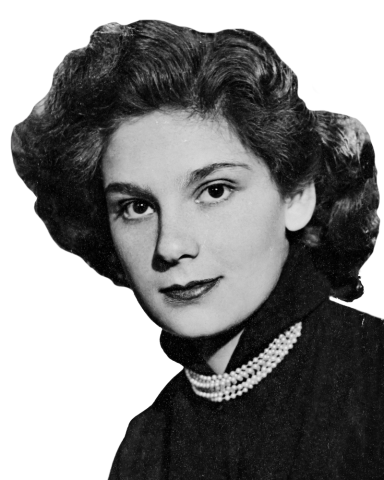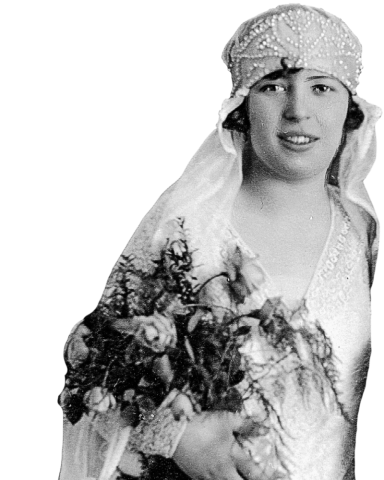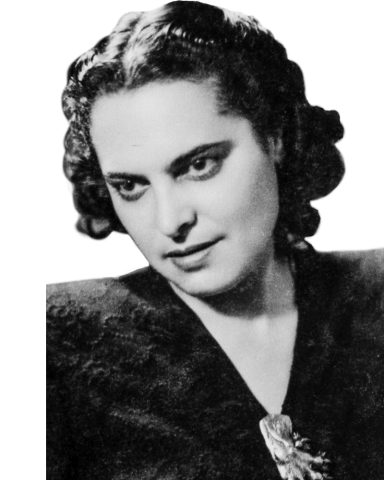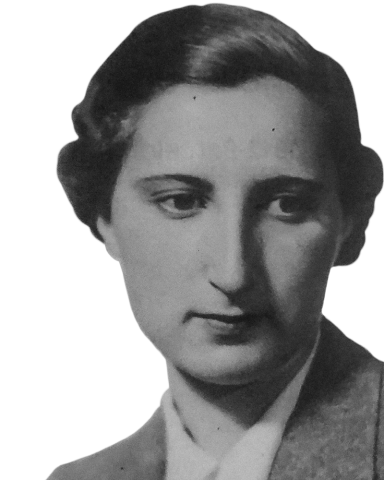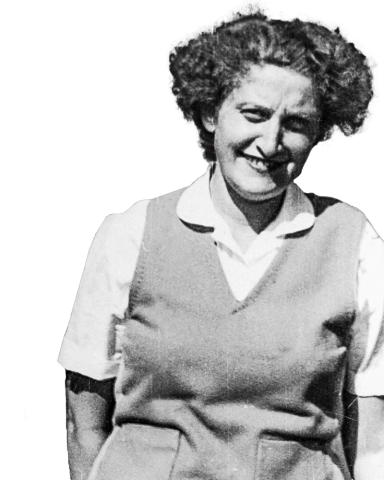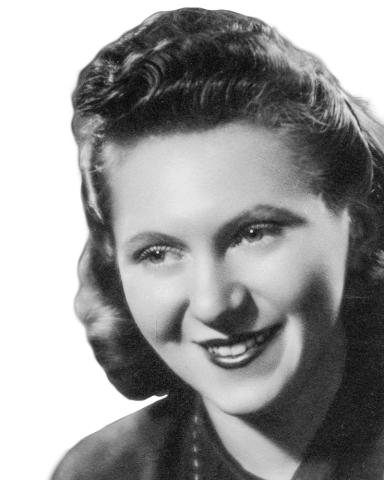
Katarína Löfflerová
Katarína Löfflerová was a Jewish Holocaust survivor, surviving several concentration camps. Living her whole life in Bratislava, speaking several languages, she was the true Central European in heart.
Interviewer
Martin Korcok
Year of interview
2004
Interview location
Bratislava, Slovakia
Watch the film
Click here to watch Centropa's documentary about Katarína Löfflerová.
(Available with Czech, Hungarian or Slovak audio and English or German subtitles.)
Katarína Löfflerová was born in Bratislava into a middle-class family with Hungarian and Slovak roots. She grew up in Bratislava, and during grammar school, she studied religion and Hebrew. For secondary school, she went to the Evangelic Lyceum in Bratislava. Apart from the languages she already knew, which was Slovak, German and Hungarian, she also learned English. Löfflerová was very active in various sports clubs, playing tennis and swimming. She was also taking piano classes, as it was custom for the girl of her social background. In their household, Löfflers had a governess and a maid.
Löfflerová had a younger sister Alžbeta and close relationships with her family, regularly going on vacation to various places in Slovakia and Hungary together. The family was not religious; they kept only the Yom Kippur fast and visited the temple only a few times a year during the high holidays. The household was not kosher and once they even had a Christmas tree.
Before the war, she had not encountered antisemitism. The social circles of her friends were mixed. However, her parents' close friends were Jewish only.
After finishing her studies she worked in the Klinger factory and got married to a Jewish man Oskar Klopstock. Her sister also got married in a Jewish ceremony. Löfflerová was very sociable and active but she was not politically involved in any stream of political ideology.
After the partition of Czechoslovakia and the establishment of the Slovak State, Löfflerová encountered positive and negative interactions with non-Jews. She was scared while wearing the Yellow star (which she was not wearing pinned on her clothes until the moment she spotted the guards) and her family was living in fear and anxiety. However, the family decided not to emigrate and stay in Czechoslovakia (later Slovakia). In 1942 she bravely managed to save her husband, father and brother-in-law from the deportations once they were taken to forced labour camps.
She was deported after the German occupation of Slovakia in 1944. Her sister with her family went into hiding and Löfflerová was deported together with her mother, aunt, father and husband to Auschwitz. Her family was killed there immediately, and Löfflerová was after 10 days taken with other prisoners to work in the military factory close to Dresden. Later she was further deported to Mauthausen, from where she was liberated.
After the liberation, she returned to Bratislava, where she met her second husband Ladislav Löffler, a non-observant Jew. The couple stayed in Czechoslovakia and had a daughter Anna, who was brought up non-religious. Löfflerová worked for more than 25 years as a tour guide, using her language skills. She was always openly Jewish, even during communism and was not hiding her visits to the temple on high holidays. She did not encounter antisemitism after the war or any other negative experience due to the fact that she was Jewish.
She never became a party member (although she was considering it in the 1940s) and she was actively participating in the protests during the Velvet Revolution in Czechoslovakia. Until her death in 2006, she lived in Bratislava, where she spent her time going for walks, and reading books about history and news. Löfflerová visited Israel twice and was very happy about having the opportunity to travel abroad which she greatly enjoyed. She was a supporter of Israel, but never had the desire to live there. She said that she was probably too Central European for it.
